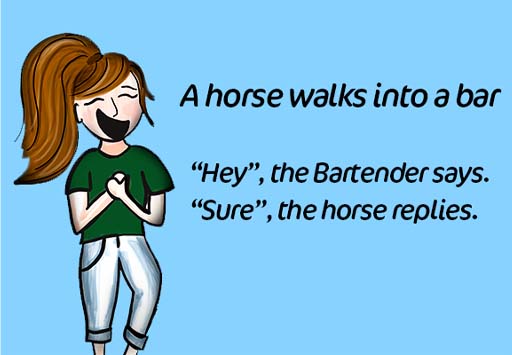1 Present, past and future?
There are occasions when it’s not at all important when something happened:
A horse walks into a bar…
Two men are stranded on a desert island…
A man gets into a lift on the third floor…
These are the introductions for jokes, shaggy dog stories and riddles, and the main thing about them is the situation, the dialogue and/or the outcome. It doesn’t matter what day, month or year these events happened (if they ever did). Most other types of story are different. We want to have the events situated in time – when did it happen, when did it finish, and so on.
If you want to show that something happened in the past in English, you change the form of the verbs you use. Most verbs indicate that something has happened in the past by adding the ending -ed to the basic verb (or just -d if it ends with ‘e’ already):
- I live in Colchester > I lived in Colchester.
- They want pizza for dinner > They wanted pizza for dinner.
Irregular verbs, which you’ll take a closer look at later on this week, also change, but in a different way:
- We eat a lot of fish > We ate a lot of fish.
- Sean buys his clothes in the market > Sean bought his clothes in the market.
The past forms of verbs like eat and buy aren’t predictable, so adult learners of English have to learn them one by one (with much heartache and sighing, no doubt!). If you grew up using English you didn’t have to be taught these verbs explicitly, because habit will have drummed them into you. Irregular verbs tend to be some of the most commonly used verbs, which is partly why they have not been regularised to follow the pattern used by other verbs.

